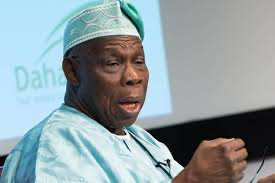Boasts he laid solid foundation for Nigeria’s uninterrupted policy since 1999
Former Head of State, Gen. Abdulsalami Abubakar has stressed that democracy remains the only vehicle that will boost development and nurture good governance in any nation.
The former Head of State, who was the chairman of a book launch, “100 years of political party evolution,” on Thursday in Abuja, organized by the Inter Party Advisory Council (IPAC), expressed happiness that it was under the regime that the seed of unbroken democracy was planted on May 29, 1999.
He boasted that he is very proud of being the one who handed over power to a democratically-elected administration, adding, “I laid a solid foundation for democracy in Nigeria”.
Represented by Gen. Abdulrasheed Aliyu, Gen. Abubakar noted that, that democracy has survived in Nigeria for the past 26 years, is a testament to citizens’ belief and resilience in representative governance.
He said: “Despite military interventions, democracy has come to stay in Nigeria.
“There is no substitute for the government of the people, by the people, and for the people, which democracy represents as sovereignty resides with the people.
“This year will also make it 26 years of unbroken democracy in Nigeria, the longest period of constitutional governance since 1st October 1960, when the country got independence from the British colonial masters.
“I am happy that my government, as the then military Head of State ushered in this era of democracy when I handed over power to the elected President on 29th May 1999. My government laid this solid foundation for democratic governance.
“It also shows that when leaders are patriotic, passionate, resolute, and unwavering in building strong democratic structures and institutions, democracy could flourish and yield its dividends to citizens.
“We should therefore keep watering and nurturing the tree of democracy as there is no alternative to civil rule. Our democracy has been tested and shaken by reactionary forces and survived. It is a testament to citizen’s belief and resilience in representative governance”.
Chairman of Independent National Electoral Commission (INEC), Prof. Mahmood Yakubu, described party politics as “the oxygen of Nigeria’s political system,” stressing their irreplaceable role in elections.
He outlined critical areas for improvement, lmenting the lack of credible party primaries, which often lead to series of litigation and breach of public distrust.“
A democratic society begins with democratic parties,” he stated, urging parties to prioritize transparent candidate selection.
Highlighting INEC’s collaboration with the National Assembly, Yakubu revealed plans for a retreat to address pressing amendments to the Electoral Act and Constitution. “Reforms require collective advocacy,” he said, challenging IPAC to champion legislative changes for fairer elections.
Speaker of the House of Representatives, Hon. Tajudeen Abbas, said Nigeria’s return to civil rule in 1999 marked a new beginning for the nation after over 30 years of military hiatus, adding that with Olusegun Obasanjo emerging as president under the platform of the People’s Democratic Party (PDP), the journey towards democratic consolidation began in Nigeria.
According to the speaker, “The PDP’s long-standing stay in power without military interference showed that democracy had come to stay. This motivated different political groups to continue to strengthen the process and seek political office.
“The formation of the All Progressives Congress (APC) alliance in 2013, was the beginning of such moves as it marked the first significant political realignment since Nigeria’s independence and creating a pan-Nigerian political movement with stronger nationalist focus.
“The APC’s victory in the 2015, 2019, and 2023 elections represented a critical shift in Nigeria’s historical narrative. And, this is where we are working hard to build from the challenges that led to the collapse of previous republics.
“What remains true is that strong political parties, including an active and vibrant opposition, are not only important but necessary for the consolidation of democracy in our dear country.
“Political parties must serve as platforms for ideation, policy innovation, and citizen engagement, rather than tools for personal aggrandizement or factional dominance. The vibrancy of a democracy is measured not just by the strength of its ruling party, but also by the ability of its opposition to provide constructive criticism and alternative pathways for governance.
“Democracy is about competition and political parties must fashion strategies of inclusivity and ensure that members of the political parties are fully involved in the decision-making process of the party to take ownership of the activities of the party”.
Former Senate President, Senator Anyim Pius Anyim said that besides the still-born constitutional conference of 2006 and the 2014 confab, no other structured effort has been made in a decade to resolve the ever-lingering issues of instability in the Nigerian polity.
He said this is however at the root of the lingering problem of national instability leading to high-level insecurity, economic regression, and the heavy burden of mal-administration among others
He stressed: “The incontrovertible fact, that in any heterogenous or plural country of similar complexities as Nigeria, the need for national dialogue and minimum consensus on the terms of the union cannot be ignored or over-emphasized.
“It behooves this generation of leaders and elites to establish that dialogue, and reach that consensus that Nigeria sorely needs to rid herself and her parts, of the mutual suspicions, distrust, and antagonisms that have retarded her growth into the stable nation and contending global power she has every potential to be.”
Speaking earlier, the chief host and National Chairman of IPAC, Alhaji Yusuf Mamman Dantalle, said that the launch of the book that marks a century of political party activities in the country remains significant.


















